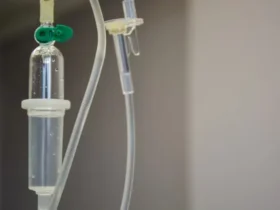Psychiatric disorders are complicated conditions that can have far-reaching effects on individuals and their loved ones. However, there are many ways that families can support mental health treatment and recovery.
Getting involved with treatment benefits the patient and the family by improving communication and strengthening relationships. Involvement with therapists also helps family members learn more about their loved one’s condition and how to help them.
Support
Mental illnesses or disorders affect millions of people worldwide. These conditions may require thorough and prolonged treatment, which can be challenging for affected individuals and their families.
Family psychiatric services offer a variety of support for patients and their loved ones. They may provide education programs to help individuals understand their loved one’s condition. This type of therapy, known as psychoeducation, helps reduce misunderstandings and stigma.
Additionally, family psychiatric services often provide peer support, which helps individuals and their families feel less isolated and overwhelmed. This type of support is especially beneficial for families with a member who is struggling with a mental illness, as it can help them develop more meaningful relationships.
Education
Empowering families through education can improve their participation in mental health treatment. It can also strengthen therapeutic alliances and promote better treatment adherence and overall wellness outcomes.
Psychiatric facilities often offer family therapy or educational programming for patients and their families. Often called psychoeducation, this therapy helps family members learn more about their loved one’s condition, how it affects them and their relationships, and how they can better support their loved ones during treatment.
This knowledge can help families avoid misconceptions about mental illness, such as that it’s contagious or not real. It can also help families understand how medications affect their loved one’s body, such as how psychiatric medicines can cause weight gain or irregular heart rhythms. This information can dissipate stigma and encourage people to seek treatment.
Connection
The family is often a crucial support system for loved ones with mental health disorders. Therapists trained in family therapy can help patients and their families learn more about how their psychiatric disorder affects each household member. This can include providing education programs, also known as psychoeducation, on symptoms, causes and treatment options for a person’s specific disorder.
Many people have difficulty accessing mental health care, including family therapy. The cost, need for transportation and childcare and waiting lists are all barriers to receiving services.
Telepsychiatry offers a solution to some of these challenges. This form of telemedicine, or e-healthcare, allows for videoconferences to provide a psychiatric evaluation. This can be done alongside or instead of face-to-face visits to increase accessibility to care.
Prevention
Mental illness and disorders can affect people of all ages, races, sexes, and socioeconomic backgrounds. Often, family members are first to recognize the early signs of mental illness in their loved ones and can play an important role in encouraging them to seek professional help, accompanying them to therapy sessions, and actively participating in treatment plans.
Psychiatrists also offer prevention by educating patients and their families through psychoeducation. This involves teaching patients and their families about mental health conditions, symptoms, causes, treatment options and prognosis.
Moreover, family psychiatric services can also offer preventive care through consultations with patients on an ongoing basis. This preventative care provides a wide range of benefits to the patient and their family. These benefits include: shortened lengths of stay, improved behavioral health outcomes, strengthened community connections and natural supports, and sustained success post-discharge.
Treatment
Many mental illnesses have a genetic component, and a family history of psychiatric conditions is an important consideration. Psychiatrists can assess whether family dynamics affect a patient’s symptoms and use this information to tailor treatment.
Psychiatrists can interview patients and their families to understand the biopsychosocial context of their challenges, identify the specific issues that need to be addressed and facilitate referral to a family therapist when necessary. Involving families as essential partners can enhance the effectiveness of treatment and improve outcomes.
Psychiatrists also provide psychoeducation, which is education about the illness, its causes, and how it can be treated. This includes dispelling myths and misconceptions about psychiatric disorders.










Hello!! My name is Annabella
I love to eat, travel, and eat some more! I am married to the man of my dreams and have a beautiful little girl whose smiles can brighten anyone’s day!